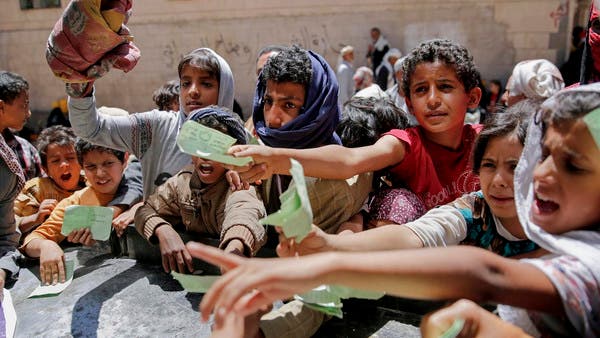One of the biggest injustices facing the world today is unequal food supply. Food shortages affect 11.3% of the world’s population, and almost 100% of world hunger occurs in underdeveloped nations. The nation that has been hit the hardest by food shortages is Yemen. Yemen has been dealing with war, poverty, and famine for years but due to COVID-19, the situation has worsened.
Children in Yemen have been the ones most affected by food shortages, with one of the highest child malnutrition rates in the world. Over two million children in Yemen required treatment in the last year for acute malnutrition. Women have also been greatly affected by malnutrition, with over a million being treated for acute malnutrition last year. The food shortage in Yemen was grim before the coronavirus hit, but now the country is desperate for help. Yemen is one of the poorest countries in the world, and many people buy food on credit, which only drives the people and the country as a whole deeper into poverty.
The worst part of this situation is that it can be fixed by wealthier countries. World powers have sat and watched a nation starve, leaving non-profit charities to try to help. There is enough food produced to feed all seven billion people in the world, but poor nations can’t afford to buy enough food to feed their citizens. Unequal food supply is one of the biggest injustices that the world faces today, leaving impoverished nations to starve while rich countries have more food than they know what to do with.
The gap between the food supply of wealthy countries and poor ones is the result of poor countries being subalterns. Many countries that are poor and ravaged by war, disease, and famine face these conditions because of the intervention of rich colonizing countries. Many countries around the world were colonized for years, then were suddenly left to fend for themselves, which results in weak governments that leave citizens even poorer than when they were colonized. Countries become colonized when rich nations see them as inferior subalterns that need their intervention. In today’s world, rich countries have the power to help feed starving nations, yet billions continue to starve from situations that these rich countries played a part in creating.


Yemen, as we all know, has been a global issue for many years, but one of the strongest points you made is that nobody is doing anything about it. When we see injustice within our own country, we (to some extent) react in a timely manner. On the contrary, when the problem does not directly affect our global position or financial situation, we tend to not care or help contribute to solving the solution. As you said, we can solve the issues of Yemen by rich contributing to the cause, but because of our perspective that focuses on mainly ourselves, we do not do this.
Hello, great post about unequal food supply. This topic was not one that had even crossed my mind while thinking about injustices, but this is an extremely important topic. I think it is very important for wealthier countries to help out poorer countries with many citizens that are unable to afford or find food. This is a difficult quick fix, but by implementing a system to get food to these countries could save lives and cause great change.